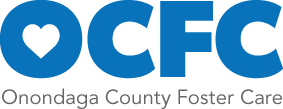“Executive Leadership Session”
Presenters: James Czarniak, Deputy Commissioner, Onondaga County DCFS, Renee Hallock, Associate Commissioner, NYS Office of Children & Family Services, Dr. Jeremy Kohomban, President and CEO, The Children’s Village
Brief Presentation Description: This session will discuss the changes being proposed by the County along with State and National trends regarding kinship care to assist executive leadership in government, voluntary agencies, and service providers in planning and supporting the work ahead. Executive leadership who cannot attend the entire day are encouraged to attend this session to get an overview of the day and to get information on the changing landscape of foster care in Onondaga County.
Target Audience: CEO’s and Executive Directors, Legislators, Government Department Heads, and Senior level management in any agency involved in foster care/permanency.
Download : Executive Leadership Session
“Every Kid Needs a Family: Research, Policy and Practice” (first of two sequential workshops: Participants can attend either or both workshops)
Presenters: Chris Behan & Evette Jackson, Senior Associates, Annie E. Casey Foundation
Brief Presentation Description: Every kid needs a family. This, we know. We know it when we look at our own children and think about our dreams for them. We know it in our hearts, in our bones and from our own stories. The national consensus is that the work of child welfare is to keep kids with their families or to place them in family settings when removal is necessary. This workshop describes the research, policy and practices behind this ideal. The goal is to set the stage for improvement so that when children and their families come into contact with the child welfare system, agencies can ensure that children’s needs for safety, permanence and well-being are met in families, supported by a robust array of services, practice strategies, financing arrangements and policies.
“Every Kid Needs a Family: Strategies to Decrease Group Placements” (second of two sequential workshops: Participants can attend either or both workshops)
Brief Presentation Description: This workshop describes a set of strategies that have been applied by Casey’s Child Welfare Strategy Group in collaboration with public systems around the country aimed at keeping kids with their own families or placing them in family settings when removal is necessary. Strategies that have proven successful to decrease placements in congregate care will be highlighted as a way to put pressure on the system to change—increasing kin and foster family placements, improving supports for those families and generating cost reductions for reinvestment in prevention services.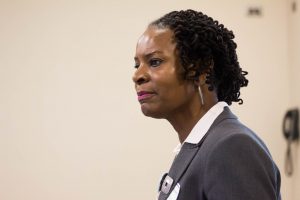
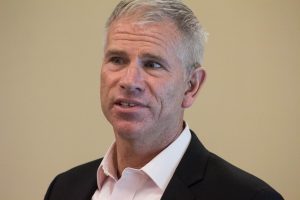
Download : Every Kid Needs a Family – Research Policy & Practice
Download: Every Kid Needs a Family – Strategies to Decrease Group Placements
“Facilitated Collaborative Inquiry: Engaging and empowering practitioners to identify and improve their most pressing challenges”
Presenter: Stephen Shimshock, Ph.D., Casey Family Services, Director – Systems, Data & Reporting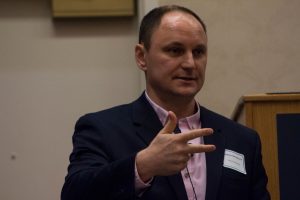
Brief Presentation Description: In this session participants will learn about the Facilitated Collaborative Inquiry (FCI) process. FCI aims to engage teams to take a data informed approach to identify and make measured improvements in areas that are important to them. While improved outcomes are a key aspect of FCI, equally important is the building of what we call “a culture of best practitioners.” With the whole team engaged in the inquiry process, everyone benefits from the collaborative learning that takes place.
Target Audience: Child welfare leaders and direct service practitioners
Download: Facilitated Collaborative Inquiry
“The Relentless Pursuit of Families: Why Kids Thrive with Kin”
Presenters: Ryan Johnson, NYS Kinship Navigator, Michelle Belge, Hillside Children’s Center and Christy Vaughn, Onondaga County DCFS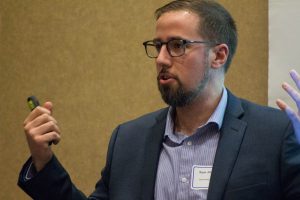
Brief Presentation Description: This presentation will give an overview of kinship care, family finding, and the Onondaga County Triage team. Extensive research shows that kinship care, when extended family and friends raise children, provides the best long-term outcomes for children and increases resiliency in the face of adverse childhood experiences.
The first part of this session will cover some of the reasons why kids thrive with kin, and the makeup of these families. The second part of this presentation will cover how critical it is to look on the paternal side of the family in addition to the maternal side in order to ensure connectedness for disconnected youth. The third part of this presentation will be an introduction to the Triage team, how it works to find and equip families, and lessons learned through the first nine months of the team’s work. 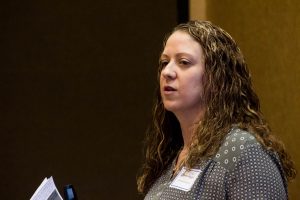
Target Audience: County Case Workers/Supervisors; Voluntary Agency Workers; and Attorneys, Court Administration, Judges
Download: The Relentless Pursuit of Families – Why Kids Thrive with Kin
“Child Welfare 101”
Presenters: Lynn Carrier, Supervisor, Onondaga County DCFS and Catherine Gilmore, Deputy County Attorney, Onondaga County Law Dept.
Brief Presentation Description: This presentation shows the paths that children and families follow when there is a CPS investigation. We walk you through the process from intake to closure of the case.
Target Audience: The target audience is staff from agencies who service children that are involved in the child welfare system.
“Youth Panel” (Repeated in Sessions #2 and #3)
Presenters: Eleanor Daiga, OCFS Youth Engagement Specialist and Youth Panelists
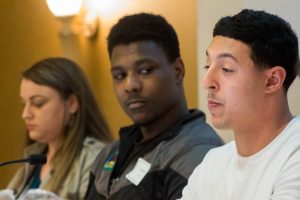
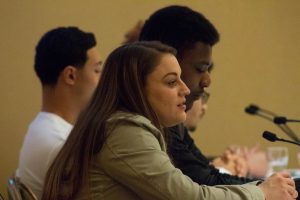
Brief Presentation Description: Facilitated by the Region 3 Youth Engagement Specialist, this panel session featuring 6 former and current foster youth will explore the importance of youth voice in securing permanency for youth in foster care. Participants will be able to explain the value of youth voice and the ascending levels of youth participation. Participants will also learn strategies to increase the quality and quantity of youth voice incorporated in their current practices. Youth panelists will share their experiences in the foster care system, and share statewide resources available to youth interested in leadership development and peer advocacy. Time will be devoted at the end of the session for panelists to answer questions posed by the participants.
“Kinship Care: Charting the Legal Obstacles” (Repeated in Session #3)
Presenter: Gerard Wallace, Esq., Director, NYS Kinship Navigator, Public Service Professor, SUNY Albany
Brief Presentation Description: This session will focus on answering many of the legal questions uniquely related to kin caring for children. Do kin have a right to care? How do kin become caregivers? What are the custodial arrangements available? Are their distinctions between informal custody, legal custody, and guardianship regarding authority for schooling, medical care, and vital records? What are the differences between legal custody and guardianship? What are the barriers to obtaining financial assistance and other public benefits? When is legal representation available? What services target kinship families? How can they plan for the future care of children?
Target Audience: Professionals who work with kinship caregivers, including child welfare workers, attorneys, human services staff and management, social workers, and kinship advocates.
Download: Kinship Care – Charting the Legal Obstacles
“Visitation: Multiple Perspectives on Parenting Time”
Presenters: Sidney Germinio, The Salvation Army, Hon. Michael Hanuszczak, Onondaga County Family Court Judge and Geri Lynne Jackson, Marriage & Family Therapist
Brief Presentation Description: This is a panel discussion with representatives from Onondaga County Family Court, Onondaga County’s visitation provider (Family Place), and a clinical therapist with expertise on attachment and children’s mental health. When children are removed from their homes and placed with alternative caregivers the timely establishment of parenting time is critical to minimize trauma and disruption. This requires immediate action and collaboration between multiple providers including court personnel, case workers and visitation staff.
Target Audience: Providers who represent/work with kids and/or foster parents, court personnel, case workers. (AFC/Law guardian/attorney for parents, judges)
“Supervisor and Director Leadership Session”
Presenters: James Czarniak, Deputy Commissioner, Onondaga County DCFS and Christopher Warren, Supervisor, Onondaga County DCFS
Brief Presentation Description: The most critical person in any system change effort is the Directors and Supervisors who are tasked with meeting the expectations from above and dealing with the operational issues in the field. This session will discuss critical tools that directors and supervisors can use to assist them in their role as change agents while also providing input on the supports needed to be successful.
Target Audience: Any Supervisor or Director who oversees direct care staff working with children and families.
Download: Supervisor & Director Leadership Session
“Supporting Kin from Certification through Placement”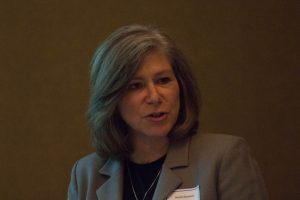
Presenter: Heidi Redlich Epstein, Director of Kinship Policy, American Bar Association Center on Children and the Law
Brief Presentation Description: This session will explore the complexities and challenges of working with kin caregivers caring for children in the child welfare system and highlight the differences of working with kin versus non-kin. We will discuss the legal barriers kin face, the importance of valuing existing family dynamics and how best to support the triad (kin caregiver, child and biological parents).
Target Audience: All professionals who work with kinship caregivers
Download: Supporting Kin from Certification through Placement
“Transitioning Youth from Residential Placement: Keeping Youth and Caregivers Connected While Getting Them Ready for Home”
Presenters: Jaime Gaglianese, LMHC & Rebekka Croft, MSW, Elmcrest Children’s Center’s “Ready for Home” program
Brief Presentation Description: Systematic transition planning through family involvement, service coordination, and community engagement, is critical for achieving changes within youth who have been placed in residential care. Residential and community-based services have traditionally been funded, structured, and therefore, delivered as two separate child-serving systems, which creates the possibility for youth and families to experience disruptions in service or to become lost in the transition between the two. This presentation will concentrate on the need to maintain, create, or rebuild connections on a community level while a youth is placed in residential care using a case example from the work done through Elmcrest’ s Ready for Home Program as a guide to display how connections can assist in long- term and lasting changes toward permanency.
Download: Transitioning Youth from Residential Placement
“Building Communities for Kin Caregivers”
Presenter: Carol S. Punske, LCSW Supervisor with Casey Family Programs
Brief Presentation Description: The attendees will be introduced to building partnerships in the community to support kin caregivers and learn about the services/supports provided by the KARE Center (Kinship and Adoption Resources and Education) Center in Tucson, Arizona.
Download: Building Communities for Kin Caregivers
“Safety and Stability: The Protective Factors of Kin Raising Children Exposed to Trauma”
Presenter: Ryan Johnson, NYS Kinship Navigator
Brief Presentation Description: Kinship placements provide a multiplicity of protective factors for children who have experienced high levels of adverse childhood experiences (ACEs). This presentation will cover information about ACEs, kinship mental health research, and how kin facilitate a pathway to health and well-being for children in their care by looking at some of the leading research on caregiver placements.
Target Audience: County Case Workers/Supervisors, Voluntary Agency Workers, Attorneys, Court Administration, Judges
Download: Safety & Stability – The Protective Factors of Kin Raising Children Exposed to Trauma
“Kinship Permanency Outcomes: Choosing between Adoption and Kinship Guardianship Assistance (KinGAP)”
Presenter: Heidi Redlich Epstein, Director of Kinship Policy, American Bar Association Center on Children and the Law
Brief Presentation Description: As child welfare professionals it is important to be able to help kinship caregivers chose the permanency option that is best for their family. In this session we will compare the legal, financial and long-term permanency differences between kinship adoption and Kinship Guardianship Assistance (KinGAP). We will explore the pros and cons of both options and determine how best to help kin caregivers with this important decision.
Download: Kinship Permanency Outcomes – Adoption vs KinGAP
“Data to Practice: The impact of placement with relatives on safety, permanency and well-being”
Presenters: Stephen Shimshock, Ph.D., Casey Family Services, Director – Systems, Data & Reporting and Carol S. Punske, LCSW Supervisor, Casey Family Programs and Local Youth & Family Member
Brief Presentation Description: In this session participants will learn about the recent findings from the Casey Family Programs “Data to Practice” report that explores the connection between time placed with relatives while in care and the impact that has on permanency, safety and well-being. The findings from this recent report will be connected to stories from youth and families in Onondaga County.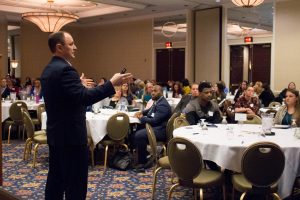
Target Audience: Child welfare leaders and direct service practitioners.
Download: The Impact of Placement with Relatives on Safety, Well-being & Permanency
